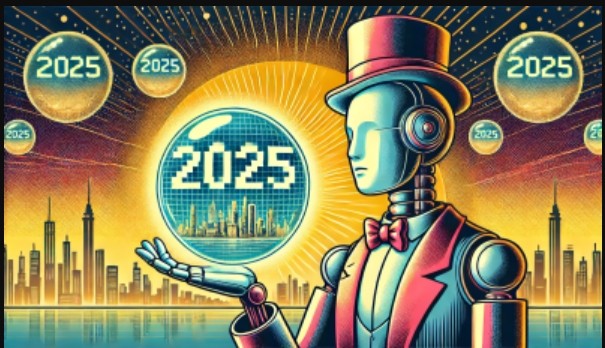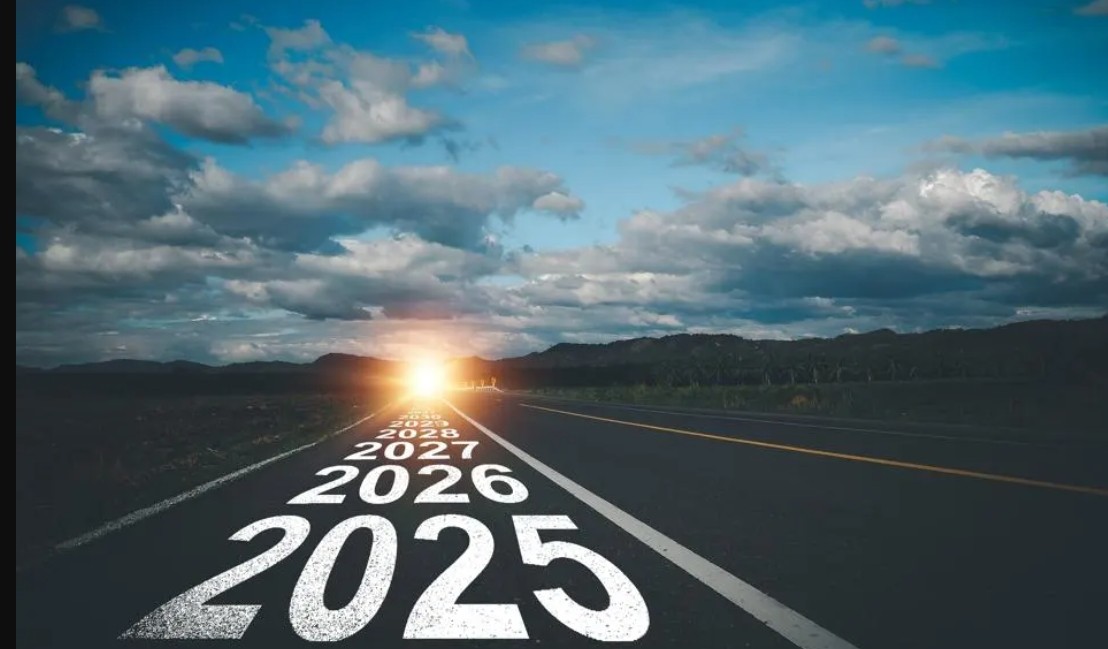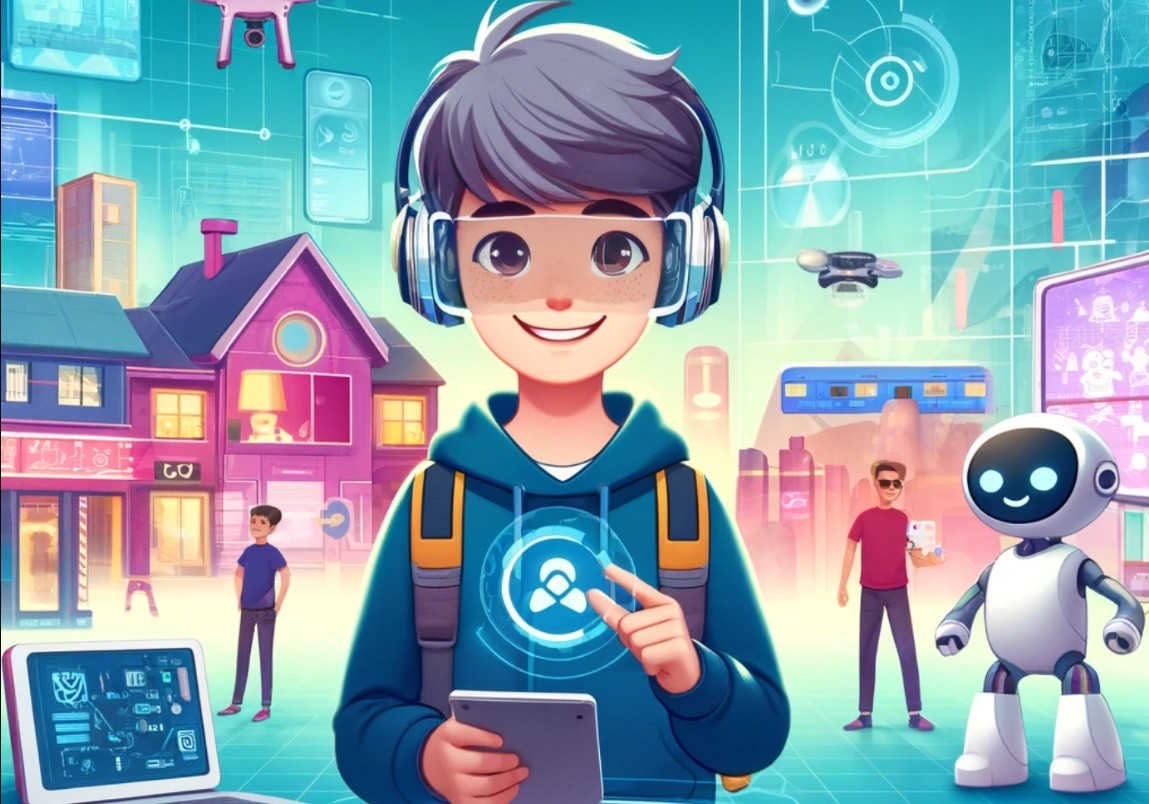Top 5 Predictions for 2025 That Will Shape Our Future
 Top 10 Memorable Brunch Spots to Start New Year 2025 in the U.S. Top 10 Memorable Brunch Spots to Start New Year 2025 in the U.S. New Year's Day brunch is a classic way to celebrate with loved ones and enjoy delicious food. These top 10 brunch spots will make your ... |
 Learn to Say 'Happy New Year' in 35 Different Languages with English Pronunciation Learn to Say 'Happy New Year' in 35 Different Languages with English Pronunciation One of the simplest and most meaningful ways to connect with others during this festive season is by learning how to say "Happy New Year" ... |
 First Day Hikes: A wonderful American tradition to Start the Year First Day Hikes: A wonderful American tradition to Start the Year First Day Hikes are organized hikes held on New Year’s Day in state parks and other natural areas across the United States. |
 America in 2025: Key Predictions for the Next Year America in 2025: Key Predictions for the Next Year As we look forward to 2025, several key changes are expected to shape the United States in various sectors. |
From technological advancements to societal shifts, these predictions highlight the transformative changes we can expect in the coming year. Here are five major predictions for 2025 that will shape our future.
 |
1. The Rise of Artificial Intelligence and Automation
Artificial Intelligence (AI) and automation have been steadily advancing over the past decade, and by 2025, their impact will be even more profound. AI technologies are expected to revolutionize various industries, from healthcare to finance, and reshape the way we live and work.
Healthcare Innovations: AI-powered diagnostic tools and personalized treatment plans will become more prevalent, improving patient outcomes and reducing healthcare costs. For example, AI algorithms can analyze medical images with greater accuracy than human doctors, leading to earlier detection of diseases like cancer. Additionally, AI-driven drug discovery will accelerate the development of new treatments, potentially saving millions of lives.
 |
Workforce Transformation: Automation will continue to replace repetitive and mundane tasks, allowing workers to focus on more complex and creative endeavors. While this shift may lead to job displacement in certain sectors, it will also create new opportunities in fields such as AI development, data analysis, and robotics. Governments and organizations will need to invest in reskilling and upskilling programs to help workers transition to these new roles.
Smart Cities: AI and automation will play a crucial role in the development of smart cities, where interconnected systems optimize energy usage, transportation, and public services. For instance, AI-powered traffic management systems can reduce congestion and emissions, while smart grids ensure efficient energy distribution. These innovations will enhance the quality of life for urban residents and contribute to more sustainable cities.
2. Climate Change Mitigation and Renewable Energy Adoption
Climate change remains one of the most pressing challenges of our time, and by 2025, efforts to mitigate its impact will be more critical than ever. Governments, businesses, and individuals will need to work together to reduce greenhouse gas emissions and transition to renewable energy sources.
Renewable Energy Expansion: The adoption of renewable energy sources, such as solar, wind, and hydroelectric power, will continue to grow. By 2025, it is estimated that renewables will account for nearly 30% of global electricity generation. Advances in energy storage technologies, such as batteries and hydrogen fuel cells, will address the intermittency issues associated with renewable energy, making it a more reliable and viable option.
Carbon Capture and Storage: To achieve net-zero emissions, carbon capture and storage (CCS) technologies will become increasingly important. These technologies capture carbon dioxide emissions from industrial processes and power plants and store them underground or repurpose them for other uses. By 2025, several large-scale CCS projects are expected to be operational, significantly reducing the carbon footprint of heavy industries.
Sustainable Practices: Businesses and consumers will adopt more sustainable practices to reduce their environmental impact. This includes the use of eco-friendly materials, waste reduction initiatives, and the promotion of circular economy principles. Governments will also implement stricter regulations and incentives to encourage sustainable practices across various sectors.
3. Advancements in Biotechnology and Healthcare
Biotechnology and healthcare are set to undergo significant advancements by 2025, driven by breakthroughs in genetic engineering, personalized medicine, and telehealth.
Genetic Engineering: CRISPR and other gene-editing technologies will enable scientists to modify genes with unprecedented precision. This will lead to new treatments for genetic disorders, such as cystic fibrosis and muscular dystrophy, and potentially even the eradication of certain diseases. Additionally, gene-editing techniques will be used to develop crops that are more resistant to pests and environmental stressors, improving food security.
Personalized Medicine: Advances in genomics and data analytics will pave the way for personalized medicine, where treatments are tailored to an individual's genetic makeup. This approach will improve the efficacy of treatments and reduce the risk of adverse reactions. By 2025, personalized medicine will become more mainstream, with healthcare providers using genetic information to guide treatment decisions.
Telehealth Expansion: The COVID-19 pandemic accelerated the adoption of telehealth, and this trend will continue to grow in 2025. Telehealth services will become more sophisticated, offering virtual consultations, remote monitoring, and AI-driven diagnostic tools. This will improve access to healthcare, particularly in rural and underserved areas, and reduce the burden on healthcare facilities.
4. The Evolution of Work and Education
The way we work and learn will continue to evolve in 2025, driven by technological advancements and changing societal needs.
Remote Work: The shift to remote work, accelerated by the COVID-19 pandemic, will become a permanent fixture for many organizations. By 2025, it is estimated that 30% of the global workforce will work remotely at least part-time. This shift will lead to the development of new tools and platforms to support remote collaboration, as well as changes in workplace policies and practices.
Gig Economy Growth: The gig economy, characterized by short-term contracts and freelance work, will continue to expand. Platforms like Uber, Airbnb, and Upwork will see increased usage, providing workers with more flexibility and autonomy. However, this growth will also raise questions about workers' rights and benefits, prompting governments to implement new regulations to protect gig workers.
Lifelong Learning: As the job market evolves, the importance of lifelong learning will become more apparent. By 2025, more individuals will pursue continuous education and skills development to stay competitive in the workforce. Online learning platforms, such as Coursera and edX, will play a crucial role in providing accessible and affordable education opportunities.
5. The Impact of Digital Transformation on Society
Digital transformation will continue to reshape various aspects of society, from communication and entertainment to commerce and governance.
5G Connectivity: The rollout of 5G networks will revolutionize connectivity, offering faster speeds, lower latency, and greater capacity. By 2025, it is estimated that 5G will cover 60% of the global population, enabling new applications and services, such as autonomous vehicles, smart cities, and immersive virtual reality experiences.
E-commerce Growth: The e-commerce sector will continue to grow, driven by increasing consumer demand for convenience and the expansion of online marketplaces. By 2025, global e-commerce sales are projected to reach $7.4 trillion, accounting for 24% of total retail sales. This growth will also drive advancements in logistics and supply chain management, ensuring faster and more efficient delivery of goods.
Digital Governance: Governments will increasingly adopt digital technologies to improve public services and enhance citizen engagement. This includes the use of blockchain for secure and transparent voting systems, AI-driven analytics for policy-making, and digital platforms for public consultations. By 2025, digital governance will become more prevalent, promoting greater transparency, efficiency, and accountability.
Cybersecurity Challenges: As digital transformation accelerates, cybersecurity will become a critical concern. By 2025, it is estimated that cybercrime will cost the global economy $10.5 trillion annually. To address this threat, organizations and governments will invest heavily in cybersecurity measures, including advanced threat detection, encryption, and workforce training.






























